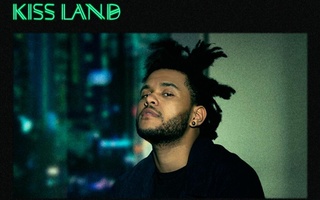{shortcode-49913c8518f4475f01971a4cab68b070a64dd353}The Weeknd is “ready for a war again,” but only if he can remain at a safe distance. In “Pray For Me,” the third single from the album accompanying the soon-to-be released film “Black Panther,” superstars Kendrick Lamar and The Weeknd struggle to stuff their artistic expression into the prescriptive box of a pop film soundtrack. The Weeknd and Lamar are tasked with creating an impassioned, introspective track to reveal the psyche of the film’s protagonist, King T’Challa. In a failed attempt to embody the energy of the protagonist, these artists color so far inside the lines that they fail to promote the king’s journey.
The track begins with a few seconds of a distilling synth and then immediately focuses into a hyper-contemporary electronic sound. The sound is reminiscent of the bassline from Kanye West’s “On Sight,” but it is less effective at creating mood. The beat panders to the expectant audience rather than making a statement for itself. It rushes along, sweeping The Weeknd and Lamar along with it, which results in a track that seems more content with being finished than being completed. The Weeknd’s verse follows, and his often lofty, emotive voice lacks its usual force. His delivery is so casual and disinterested that it stands in stark contrast to his visceral lyrics “I'm always ready to take a life again/ You know I'll ride again.” Rather than celebrating King T’Challa’s spirit, The Weeknd’s tone trivializes it, making it feel like something to be diminished rather than to be appreciated.
A short pause precedes Kendrick’s verse, and it momentarily seems like the song is regrouping. Kendrick begins spitting, but it becomes immediately evident that he feels constricted. His inhibition is obvious, especially considering how, when autonomous, Kendrick is arguably the most versatile M.C. of the 21st century. He is capable of seamlessly incorporating intricate poetry and complex characters into his work, but when he raps, “If I gotta be sacrificed for the greater good/ Then that’s what it gotta be,” it sounds like it could have been written by someone else. It would be too reductive to suggest this is Kendrick at his worst, though. This is Kendrick acknowledging his vision doesn’t fit within the scope of the project and ceding some of his creative rights. But if Kendrick is meant to be the internal monologue of a galvanized king, then he grossly lacks inspiration.
Lamar and The Weeknd vacillate between passive observers and champions of King T’Challa’s cause in a way that comes off as disorganized and unenthused. Taking into consideration the constraints of making music for a film soundtrack, it’s easier to excuse this result from two usually eminent artists. Even after acknowledging the film’s context though, Lamar and The Weeknd still complicitly pander to the status quo. In what at times feels more like contrived emotion than genuine expression, Kendrick and The Weeknd deliver a less than memorable performance.
Read more in Arts
80 Years of Music: An Interview with Joan Tower, Trailblazing Composer
















